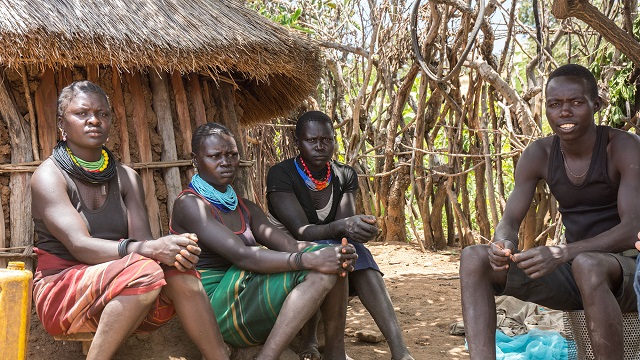
Kaabong, Uganda | THE INDEPENDENT | Several members of the Ik community, a minority group in Kaabong district have been blocked from contesting for political positions due to low levels of education.
The Ik people, currently settled in Kamion sub-county, in Kaabong district are regarded as the most marginalized of all ethnic groups in Karamoja and one of the tribes that are near extinction. They are settled in the parishes of Kamion, Timu and Lokwakaramoe near the border with Kenya along the escarpment between Timu forest in the South and Kidepo National Park on Uganda’s northern frontier with Sudan.
The area situated approximately 70 km from Kaabong town, have a poor road network, no telephone connection and education facilities. As a result, the majority of the Ik population has not completed the education cycle with many of them dropping out of school even before completing O’level. According to the Kaabong District Education Officer Santina Sangar, by 2016, there was only one graduate among Ik.
The graduate Hillary Lokwang was the first member of the Ik community to join Parliament in the history of Uganda after the creation of a new constituency in the area in which he emerged unopposed with no one to match his level of education; a Bachelors Degree in Public Administration from St. Lawrence University, Kampala.
As the country goes through another election cycle, there is no challenger again for Lokwang. Sangar says that as much as the community is embracing education today, the levels of education remain low among the Ik.
According to the electoral laws, one needs an equivalent of A’ level to contest as a Member of Parliament. But according to Godfrey Lena Apalorionokodos, the former Deputy headteacher of John Paul II Memorial Secondary School Kaabong where most of the Ik students attended school, many dropped out before completing senior 4.
Apalorionokodos says that the students from the area showed little interest in education and could drop out of school anytime with or without a reason. He explains that although a number of them now want to contest for political positions, they do not have the requisite requirements for the positions.
One of the area elder’s John Mark Lomeri says that the few students who accessed secondary education in the 1990’s had to trek a journey of 70-kilometres to find the nearest school in Kaabong town amidst insecurity.
He said however there are more students now accessing education compared to the situation that was five years ago when the literacy and educational levels were still very low.
“There is an improvement. Our children are in secondary schools but they may not be capable of contesting for a big political office,” said Lomeri who is also a cultural leader for the Ik.
Chris Lochoto, the Kaabong NRM chairperson also agrees that low levels of education may have barred many interested aspirants from challenging for Member of Parliament. However he said his office has recorded many aspirants for LC III council elections.
Currently, Ik county has two government-aided primary schools and four community schools. In 2018, president Museveni pledged a secondary school in the area to promote access to secondary education.
In Karamoja, only Ik Constituency MP is unopposed in the NRM primaries which often determine the winner in final elections in the region because of grass-root strength of the ruling party in the region.
*****
URN
 The Independent Uganda: You get the Truth we Pay the Price
The Independent Uganda: You get the Truth we Pay the Price






Today as we speak Ik is improving in terms of education and as a result more are soon graduating from the universities and institutions the late John Mark Lomeri left Ik with hopes and loved his community more than any other leader of the Ik expect more and serious competition this time we can’t allow someone to rule us for 15 years claiming to have changed the community it’s a not true for sure we are in this journey someone doesn’t love the community I’m telling you he incumbent mp doesn’t have love for his community that’s why he has not even involved himself in developing the community like setting up his buildings as an example.
Lomeri took some brilliant students outside Ik county and have successfully finished their o’ level education and have proceeded to universities and institutions unlike the incumbent mp hon Lokwang Hillary who has no clear achievement in Ik education
Lomeri John Mark was a great leader for Ik and always dreamt of lifting Ik to some levels